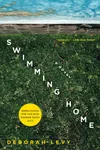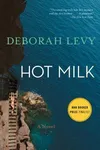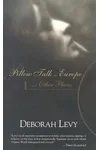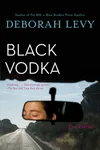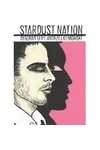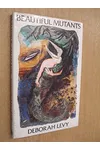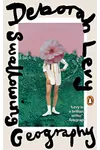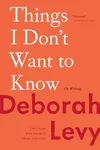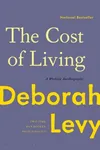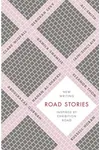Picture a South African-born storyteller who weaves dreamlike tales of identity and displacement—meet Deborah Levy! With her poetic prose and sharp insights, this British novelist, playwright, and poet has captivated readers worldwide. From the Man Booker-shortlisted Swimming Home to her evocative 'living autobiographies,' Levy’s work invites us to explore the complexities of human connection in a globalized world.
Born in Johannesburg and now a literary luminary in London, Levy’s unique voice blends surrealism with raw emotion, making her a vital force in contemporary literature. Ready to dive into her world? Let’s trace her journey from a young dreamer to a celebrated author.
The Making of Deborah Levy
Deborah Levy was born on August 6, 1959, in Johannesburg, South Africa, to a family shaped by political and cultural upheaval. Her father, Norman Levy, was an academic and member of the African National Congress, imprisoned for his activism against apartheid. At age nine, Levy and her family relocated to London in 1968, a move that deeply influenced her sense of identity and belonging. Educated at St Saviour’s and St Olave’s School and later at Hampstead School, she found her creative spark at Dartington College of Arts, inspired by filmmaker Derek Jarman. Initially drawn to theatre, Levy wrote bold, imaginative plays like Pax and Heresies, staged by the Royal Shakespeare Company, before turning to fiction and poetry.
Deborah Levy’s Unforgettable Stories
Levy’s novels are like dreams you can’t shake—vivid, unsettling, and deeply human. Her breakthrough came with Swimming Home (2011), a Man Booker-shortlisted novel about a mysterious stranger disrupting a family’s vacation in France. Its lyrical prose and psychological depth marked Levy as a literary star. Hot Milk (2016), another Booker contender, explores the fraught bond between a mother and daughter in a surreal Spanish setting, blending humor with existential questions. The Man Who Saw Everything (2019), longlisted for the Booker, delves into memory and history through a young historian’s fractured narrative.
Her 'living autobiography' trilogy—Things I Don’t Want to Know (2013), The Cost of Living (2018), and Real Estate (2021)—offers a luminous reflection on womanhood, creativity, and freedom. Written in response to George Orwell’s 'Why I Write,' these memoirs are intimate yet universal, capturing life’s turbulence with wit and grace. Levy’s style, often described as cinematic, favors shifting perspectives and fragmented narratives, inviting readers to piece together the emotional truth. Her work, infused with surrealist influences and a feminist lens, centers women as complex, mysterious protagonists.
Why Deborah Levy Matters
Deborah Levy’s impact lies in her ability to make the personal political and the ordinary profound. Her exploration of displacement, gender, and identity resonates in a world grappling with division and change. By placing women at the heart of her stories, she challenges literary norms, earning praise from critics and devotion from readers. A Fellow of the Royal Society of Literature, Levy has inspired a new generation of writers to embrace bold, experimental storytelling. Her work, translated widely, continues to spark conversations about what it means to belong.
- Born: August 6, 1959, Johannesburg, South Africa
- Key Works: Swimming Home, Hot Milk, The Man Who Saw Everything, 'Living Autobiography' trilogy
- Awards: Shortlisted for the Man Booker Prize (2012, 2016), Prix Femina Étranger, Fellow of the Royal Society of Literature
About Deborah Levy
Want to lose yourself in a story that’s equal parts poetic and provocative? Grab Swimming Home or Hot Milk and dive into Deborah Levy’s mesmerizing world!


